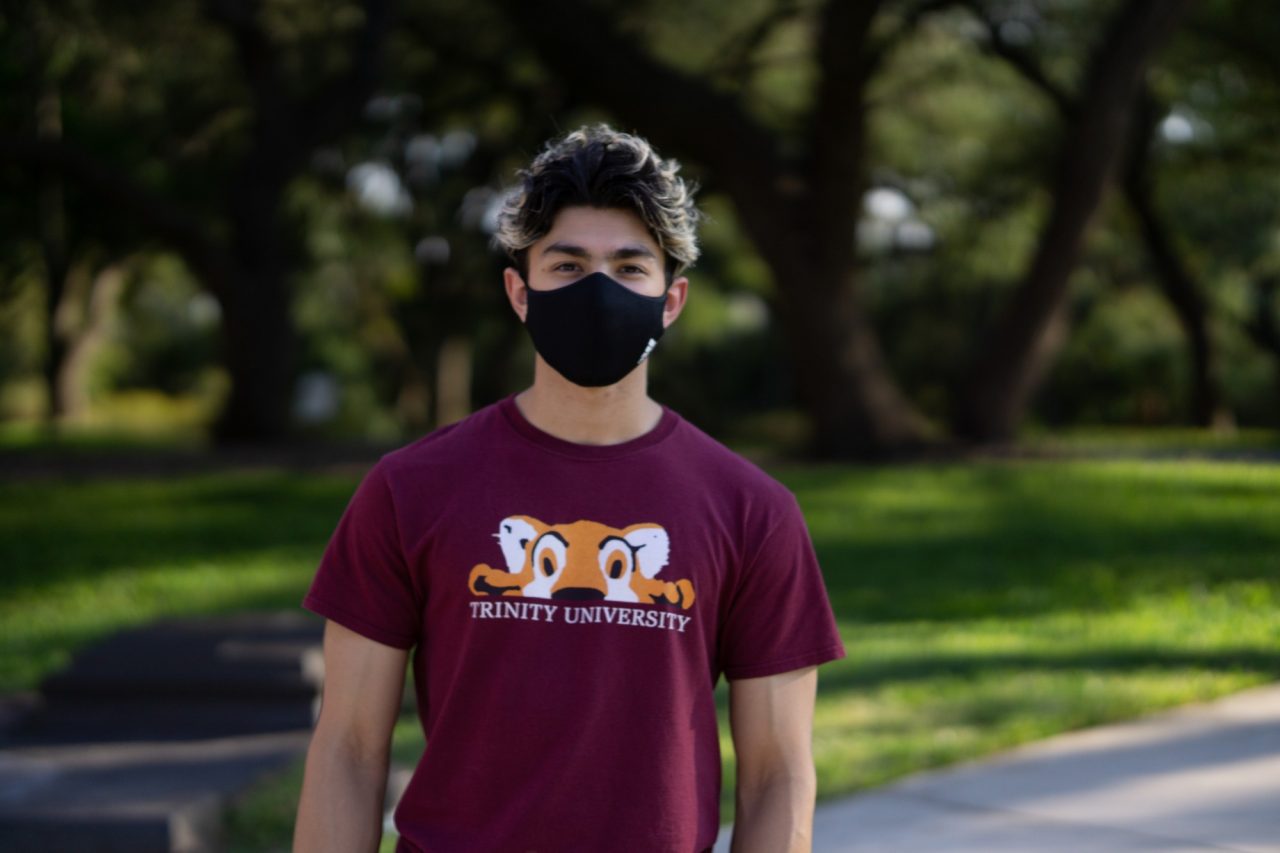image by Kate Nuelle
For Trinity students, health and equality have become top priorities this year more than ever. Naturally, a club to address such issues has risen to the occasion.
Partners in Health is a Boston-based grassroots organization that works to provide modern medicine to those who need it. The Partners in Health Engage (PIHE) program organizes local communities to build the global movement around the right to health. They have recruited groups in countries all over the world, including Haiti, Mexico and Russia.
This past April, Imran Khan, junior biochemistry and molecular biology major and Trinity’s PIHE coordinator, established a branch on Trinity’s campus with the help of Alfred Montoya, professor of anthropology and adviser to PIHE.
Khan came to Trinity interested in healthcare, and after taking anthropology courses realized that “health is profoundly social.”
“I actually read a paper in that class specifically on structural violence, which is basically how historically, certain populations can have poor health outcomes just based on their location and their wealth,” Khan said.
“Trinity University, especially when I was a freshman-sophomore, did not have good opportunities for people interested in global health or public health,” said Khan.
The PIHE program is based on a three-pronged foundation of advocacy: fundraising, community building and education. Advocacy focuses on interactions with political leaders and promoting political action towards systematizing the right to global health equity.
Recently, some of Trinity’s PIHE members have met with state representatives and John Cornyn, senior U.S. senator for Texas, to push for increased funding in combating the COVID-19 pandemic.
“We’re in a unique situation where the United States is the epicenter of this ongoing healthcare crisis which, as sad as it is, provides us with very unique opportunities to get involved and make very real change,” said Khan. “We saw real change over the summer after doing all of this advocacy work. Now there is talk of including a global element to the next stimulus package, global funding, which was previously not even mentioned in any proposed bill.”
Khan plans to organize future meetings with U.S. congressional members, including Ted Cruz, to propose implementing further contact-tracing and testing.
Fundraising consists mostly of organizing events and campaigns to ensure that communities receive high-quality healthcare and that Partners in Health can continue to have the resources to combat health injustices. Fundraising lead, Amitoz Singh, a junior neuroscience major, explained that their first fundraising campaign aims to raise money for the Maternal Center of Excellence in Sierra Leone.
“They have a big problem with maternal mortality and childbirth mortality,” said Singh. “So we’re raising money to build a proper center to facilitate effective, safe and clean births.”
The community and education sector aims to spread awareness about the importance of global health equity and the presence of systematic injustice in impoverished areas.
“What we’re trying to do at Trinity is spread the word and make people realize that there is a problem that needs to be fixed,” said Singh. “I think that just by having awareness, you’re already helping the problem. If they’re more aware of the situation, they’re more likely to take action.”
On Oct. 17, PIHE plans to host a screening of Bending the Arc, a documentary telling the story of Partners in Health from conception to involvement in global health battles against HIV/AIDS, Ebola and COVID-19.
In the midst of the COVID-19 pandemic, the group remains focused on its goals.
“It definitely does pose challenges with meeting people,” said Khan. “There is a lack of contact, lack of connection with those who might want to get involved, and also fewer recruitment opportunities.”
Currently, the program is unable to host the large fundraising events that they would do ordinarily; however, they continue to do events virtually and spread awareness. Khan aims to host more PIHE meetings to educate members and the community on health issues that they may not otherwise be aware of.
“We’re still trying to adapt and build the community,” said Singh.
Singh also explained how being a part of PIHE has benefited its members. “I think you’re getting very good skills that are going to help in real life,” he said. “You develop these social skills and strengthen them as well. A lot of people don’t realize that we have the right to go to any type of authoritative figure or government official, and we’re able to talk to them. You get to have your voice heard.”
“I think the word ‘health’ makes people think that you have to be pre-health or pre-med to be involved,” said Singh. “That is not true. We have a very diverse group of majors. It’s not really major-specific. It’s really open to everyone, and I think the more diversity we achieve, the more our community builds as a whole.”







